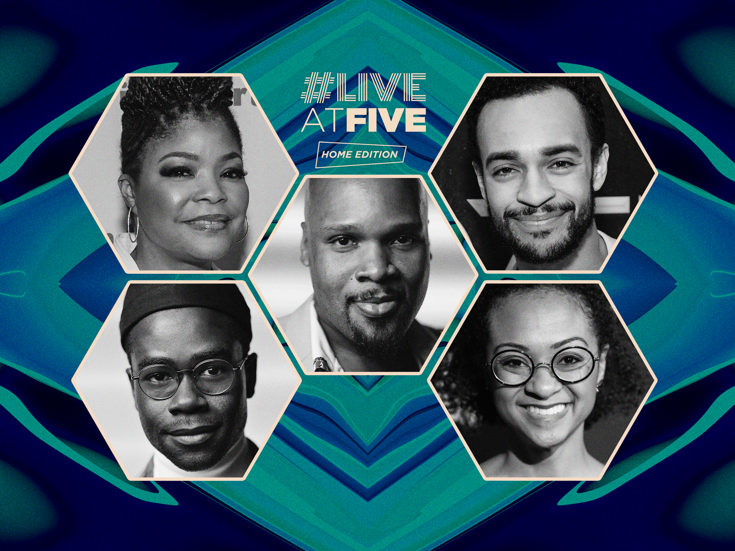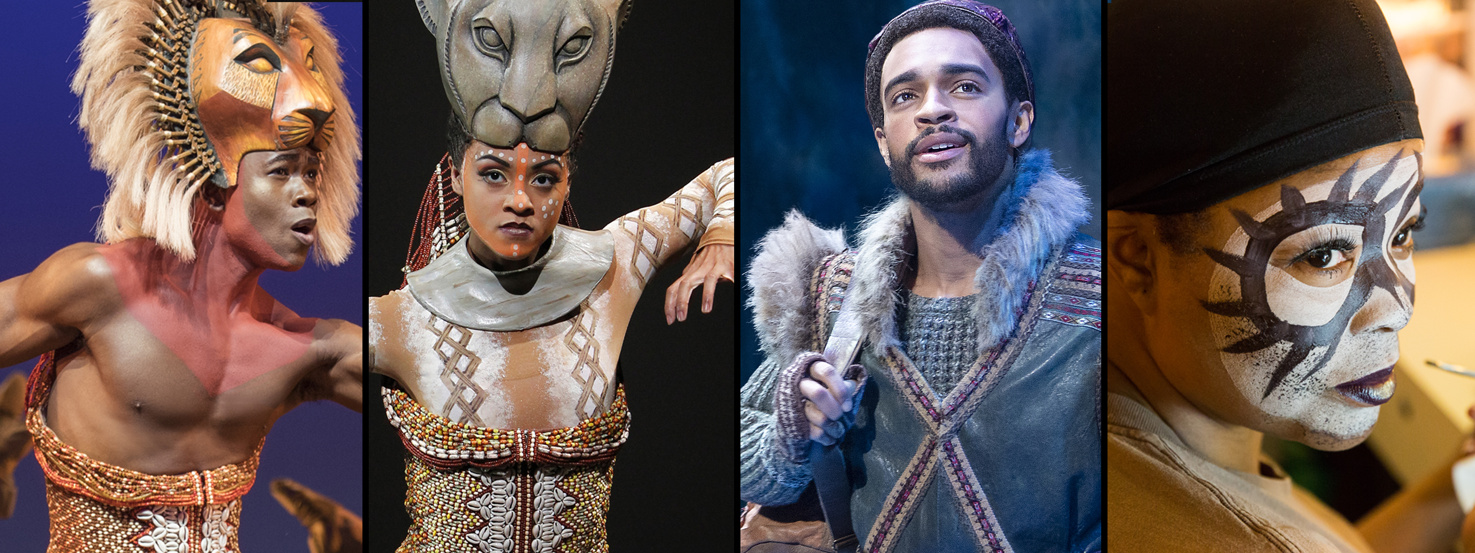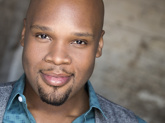Why Disney's Bradley Gibson, Syndee Winters, Noah J. Ricketts & Bonita Hamilton Say It's Important to 'Sit at the Throne'


(Photo compilation by Ryan Casey for Broadway.com)
With global protests calling for justice and racial equality, Black Broadway artists are using their voices to promote change. In an effort to keep the conversation growing, Broadway.com invited Aladdin star Michael James Scott to moderate a weekly roundtable discussion on Broadway.com's #LiveatFive. This week Scott was joined by his fellow Disney on Broadway stars Bradley Gibson, Syndee Winters, Noah J. Ricketts and Bonita Hamilton.
Hamilton has been playing the role of Shenzi, The Lion King's in-charge Hyena, for over 15 years and brings her own history and spirit into the role every time she steps on stage. "I see her as me," she said. "When developing a character that was already developed, I had to her my own. I pulled from people in my past that I love and cherish. Shenzi is a wise woman and a go-getter, not a stereotype. I brought people into the room with me who are all in my heart and engrained in my spirit. They live on through Shenzi."

Ricketts discovered newfound pride stepping into the shoes of Kristoff in Frozen after taking over the role from Jelani Alladin. "It was really important to make it authentically me," he said. "Disney was really great about giving me the space so I could take ownership. It was a challenge to take over for a cartoon that was originally a caucasian blonde man and making it exactly me. When I started, I didn’t realize how big of a deal it was until I hit the stage door every night, seeing the little Black and brown and Asian boys looking at me and seeing themselves. I don't take it lightly. I enjoy every single second of it."
Gibson has been the king of Pride Rock as Simba in The Lion King, which also happened to be the first Broadway show he saw as an audience member. "I was a high schooler with my choir on a trip from North Carolina seeing this full stage of Black and brown people doing what I've been working so hard to do," he said. "It liberated me. It's never lost on me how important it is to see a Black man take a throne as a king on Broadway. There needs to be more of it. We need to sit at the throne. Black people are amazing, we're excellent. When Broadway comes back, I'm going to continue to show the Black excellence. I think one of the reasons why The Lion King has lasted so long is because everyone sees themselves on the stage. I'm not a king when I leave the stage, but I must remind myself of the power I do truly have."
"Art reflecting life must do so authentically. Broadway can’t come back the same way; we must come back so much better than before."
Most recently seen in a return engagement as Nala in The Lion King seven years after making her Broadway debut in the role, Winters has been reflecting on her beginnings. "I thought I wanted to be different, but I actually really wanted to blend in," she said. "My name is Syndee Winters, and I've been Syndee Winters since I got my Equity card. But when I first auditioned for The Lion King I was just Syndee—like Cher. Our resident supervisor said that I needed a last name. I said that what you're going to print in the Playbill is Syndee Winters. I wish I had never changed my name. I wish I had gone with the name my father gave me, which is Syndee ChinLoy. I am a Chinese Jamaican American. I didn't want to get typecast based on my name, and I had this idea that if anyone saw my name they would count me out. I chose Winters to clear a palette and give me a better chance to get into the door. If I could change one thing, I wish I had never changed my name. It's a lesson I learned."
While there is no date set for when Broadway will open again, Ricketts already knows the changes he hopes he sees on stage. "I don't think we can come back to Broadway the way it was before," he said. "I'm so tired of celebrating every time one Black person gets a lead, it has to be normalized. We can’t keep celebrating these one-offs because we're not really growing. That's what I want to see when Broadway returns—people challenging the fold and asking, 'Why not a Black person playing these characters?' We can't tell stories that don't create change for the betterment of ourselves and our people and other marginalized groups. This is the time to rethink the stories we're telling. Art reflecting life must do so authentically. Broadway can’t come back the same way; we must come back so much better than before."
Listen to the entire discussion in the episode below!




